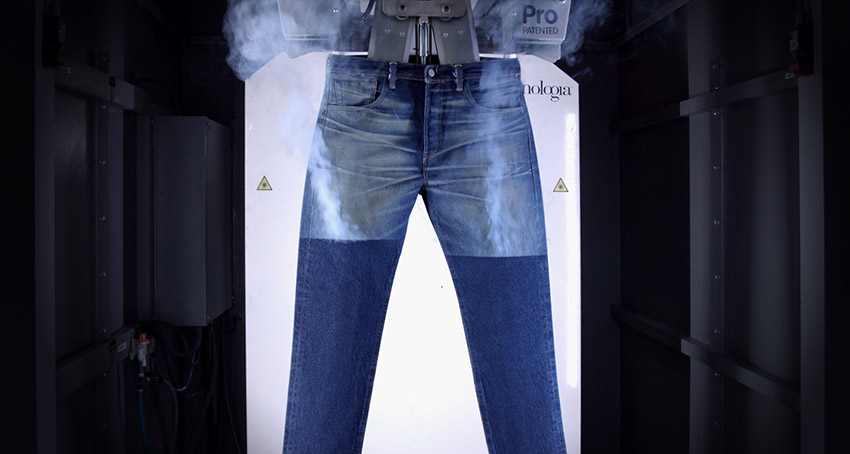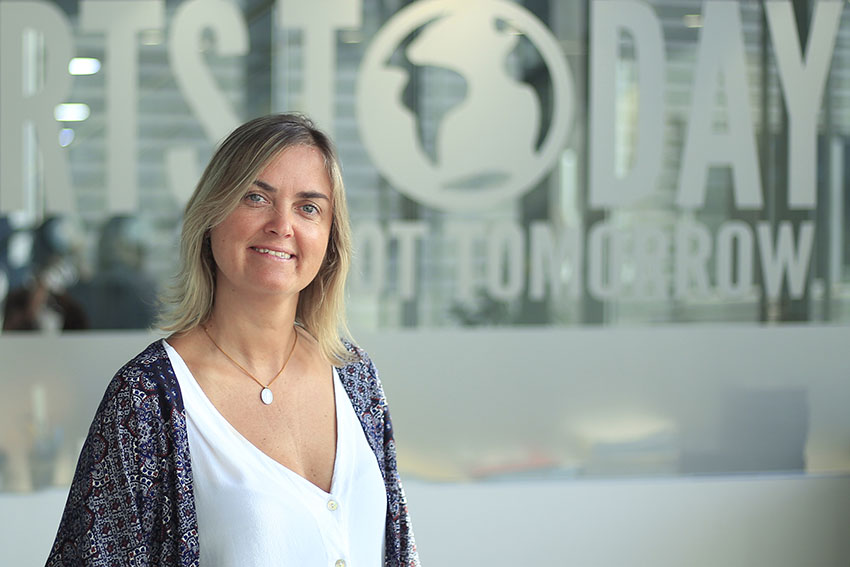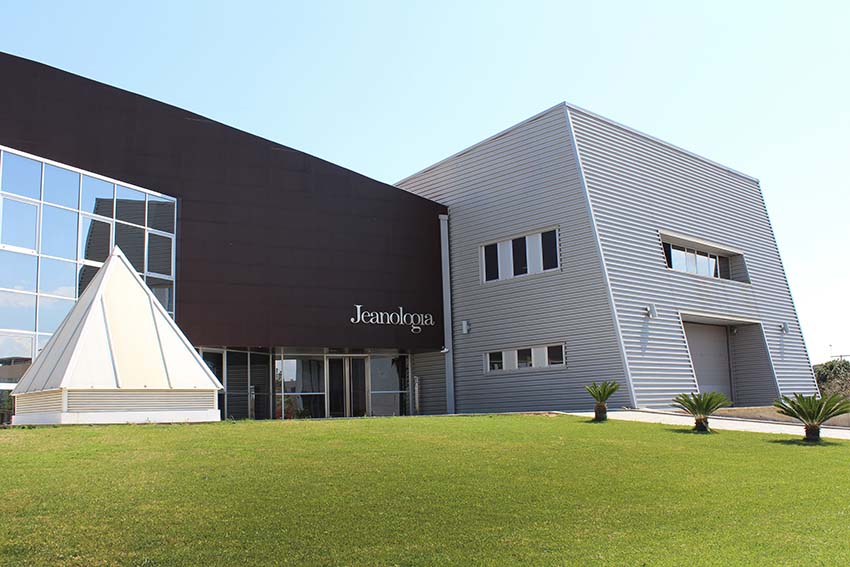Jeanologia is an innovative company with more than 25 years of experience in the development of sustainable and eco-efficient technologies for the finishing industry. Their mission is to create an ethical, sustainable and eco-efficient textile industry through their disruptive technology and know-how.
Today, Jeanologia is leading the transformation of the textile industry with their disruptive technologies, capable of increasing productivity and reducing water and energy consumption, while eliminating waste and harmful emissions, guaranteeing zero pollution, and also offering infinite possibilities for garment design and finishing.
Jeanologia has clients in 5 continents through its 10 subsidiaries. Over 35% of the 5 billion of jeans produced worldwide every year are made with their technologies, and the biggest market brands place their trust in Jeanologia, using their technology.
Interview with Carmen Silla, Marketing Director at Jeanologia.

Easy Engineering: What are the main areas of activity of the company?
Carmen Silla: Our technologies cover the entire production process, from the fabric to the finished garment, marking a new era through sustainability, digitalization and automation. Connecting fabric, design and finishing we rethink the business model of the future while reducing water, chemicals and carbon footprint.
We join forces with brands and suppliers to lead the change in the production model, by becoming their technology partner and offering the best service. All this without losing the quality or the look of the product and obtaining authentic and fashionable finishes, reducing costs and accelerating time to market. Our wide range of technologies covers all types of production: from development centers and small productions to large-scale productions, and even for retail.
E.E: What’s the news about new products?
C.S: Jeanologia is committed to innovation and the constant development of products that contribute to making the textile industry more sustainable and efficient. One of our latest launches has been Handman, a new technology that takes the industry to the next level using automation. The technology is equipped by two lasers and a robot cabinet. A human and a robot work together to produce with scalability, agility, sustainability, and efficiency.

E.E: What are the ranges of products?
C.S: Our technologies cover the entire production process. The process starts with the fabric, preparing and selecting it for the subsequent sustainable processes. We have three technologies that help to achieve this:
- G2 Dynamic: the only ozone cleaning technology for the continuous fabric finishing.
- Anubis : Complements G2Dynamic and helps to treat fabric without using water or chemicals.
- Bluescan is a lab technology that uses the Light Sensitive Fabric test, giving information about how fabrics react to the laser technologies and to the wash.
The process continues with the garment, with an efficient combination of technologies to simplifies the garment process and eliminate highly hazardous practices.
We are talking about:
- Laser technologies: We are pioneers in laser technology with which we achieve a perfect replication of vintage look and new ways for creativity, eliminating the harmful processes to the health of workers, reducing operational cost and improving environmental impact.
- G2: Using air from the atmosphere, G2 technology generates ozone to treat garments, giving them a real look, in a process that generates no waste, with no need for water or chemicals.
- E-Flow: The traditional vehicle for transporting chemicals to the garment is water. Instead, E-Flow technology is based on nanobubbles of air that act as a carrier to transmit chemicals into a garment with a minimal quantity of water and zero discharge.
- Smart Boxes: They are eco-efficient washing machines that reduce the water, chemicals and energy used in textile and apparel industry.
- ColorBox. The dyeing process is one of the most polluting practices in the fashion industry, as well as entailing high production costs. With ColorBox we ensure low impact dyeing and color reproducibility through a simplified garment dyeing finishing process.
- H2Zero: It is recycling system capable of reusing 100% of the water used. It allows greater productivity and performance with minimum electricity consumption, and completely eliminates waste from the textile industry.

Carmen Silla
On the other hand, we have also developed different software such as:
eDesigner: is the state-of-the-art software for Jeans’ creation that connects laser designers with denim developers and brands with manufacturers. It simplifies the way of designing and guarantees that what you see on the screen is what you get on the garment, reducing samples and speeding up time to market.
EIM software (Environmental Impact Measuring software) monitors the environmental impact of garments in the different production processes of the finishing industry. It measures the consumption of water, chemicals and energy.
E.E: At what stage is the market where you are currently active?
C.S: The textile industry is responsible for 20% of the world’s pollution and 10% of CO2 emissions. Besides, 15% of textile production is never used and ends up in landfill or incinerated. Within textiles, jeans are one of the best-selling garments and have the greatest environmental impact throughout their production.
5 billion jeans a year are produced in the world, requiring 500 million cubic metros of water per year for their production, as well as the use of chemicals and manual processes that put the health of more than 2 million workers at risk.

At Jeanologia, we work to change the entire jean production process, from the fabric to the finished garment, making it a success story that can be transferred to other garments.
Our commitment is to achieve what we call Mission Zero: the elimination of 100% of the waste generated in the manufacture and finishing of Blue Jeans from the fabric to the final garment, reducing water usage to near zero and returning clean water to nature. We want to join forces with all players in the industry to transform Blue Jeans into the most sustainable garment in the history of humanity, and a symbol of the new earth rebels.
E.E: What can you tell us about market trends?
C.S: Digitalization, automation and sustainability are the three major trends defining the future of the textile industry. We are prepared to completely digitalize and automate textile manufacturing achieving a production that is 100% ecological without compromising product authenticity and adapting to the new market needs.
E.E: What are the most innovative products marketed?
C.S: Each of our disruptive technologies and innovative software; considered independently of each other, would mean great steps towards a more sustainable denim industry. Using them together delivers a transformational operational model that should become the norm in our industry.

By integrating all of Jeanologia’s technologies, we enable a new production model that provide five fundamental benefits to the textile industry: it is eco-efficient, cost-neutral, scalable, agile and digital; connecting design, production and consumer. In addition, on-demand production is also possible, allowing industry to produce only what it sells instead of selling what it produces.
E.E: What estimations do you have for 2022?
C.S: We believe in a recovery of the economy and further stabilization of the sectors. However, a digital and eco-efficient process can facilitate faster and more controlled production. There must be greater integration between the digital and the physical, involving more consumer experiences with products, as well as a greater demand for these products to be sustainable.
